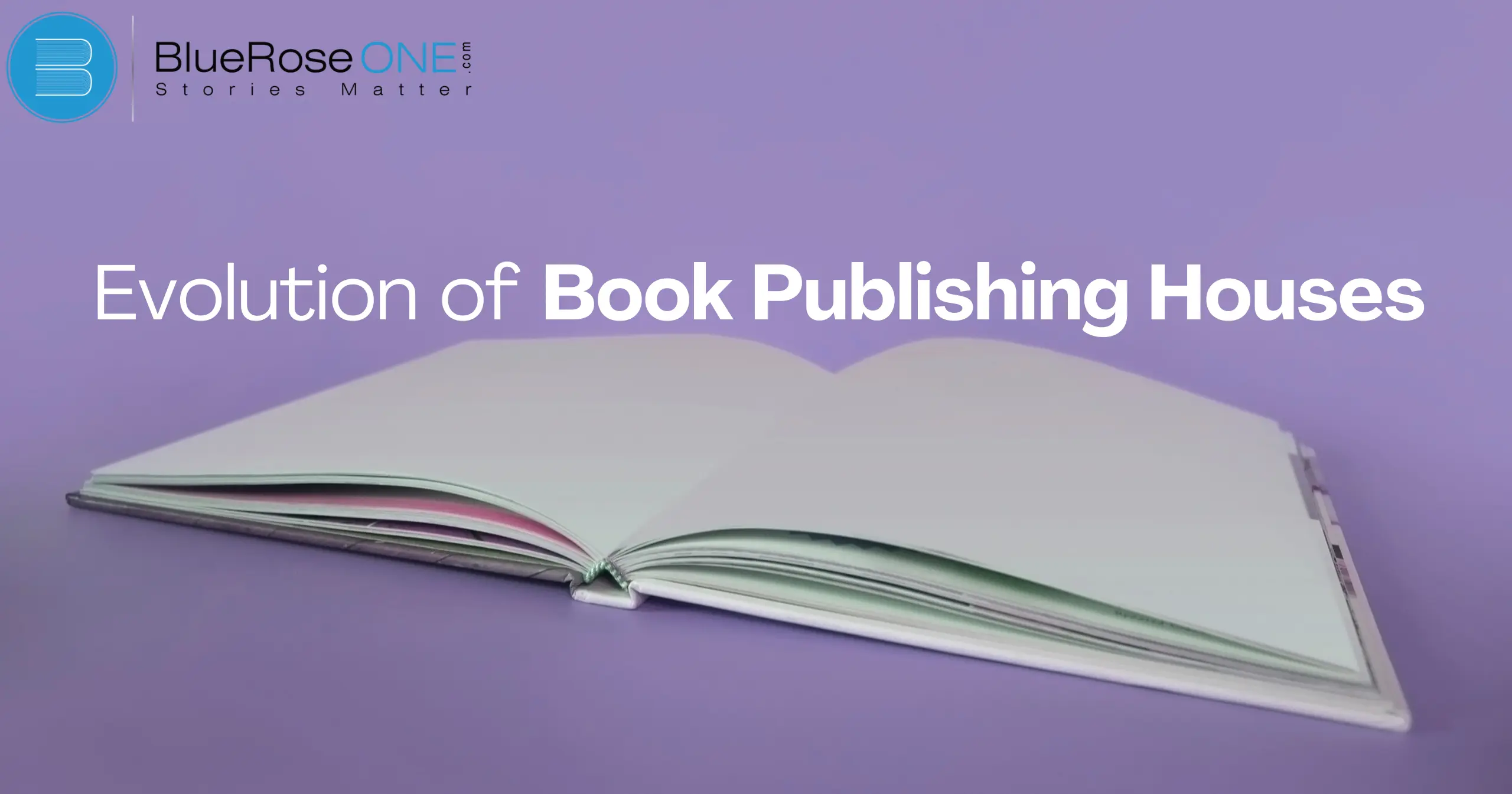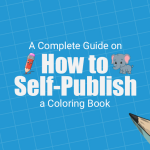Over the years, publishing firms have played a crucial role in the broad landscape of literature. A paradigm shift in the publishing industry has occurred, with independent publishers emerging and established publishing giants losing their hegemony due to shifting consumer preferences and technological improvements.
Introduction to Book Publishing Houses
As a medium between writers and readers, book publishing houses curate, produce, and disseminate literary works to a broad audience. These houses have historically had a great deal of influence over the content that was released onto the market.
Traditional Publishing: The Legacy of Big Houses
Historical Background
The history of book publishing enterprises is deeply ingrained in the landscape. For centuries, the literary world has been formed by traditional publishing, which is best represented by the history of large houses. Reputable brands like Simon & Schuster and HarperCollins have been mainstays of the publishing industry since the printing press was invented.
These titans have selected and published literary works that have endured as touchstones in culture. Their lasting impact has created the groundwork for the development of book publishing, enabling independent presses to flourish and carve out distinct markets in a constantly shifting and dynamic industry.
Role of Traditional Publishing Houses
Traditional publishing houses are pillars of the literary world, firmly rooted in the ever-changing literary scene with their rich history and unmatched knowledge. For a considerable amount of time, these publishing houses have served as the guardians of literary achievement, carefully selecting and fine-tuning their editorials to create a literary environment.
Traditional publishing houses are the cornerstone of literary culture, providing authors with the visibility and legitimacy that come with their prestigious labels while also nurturing up-and-coming writers and supporting established voices.
These ancient establishments continue to play an indispensable part in the industry’s past, present, and definitely future—even in the face of the emergence of independent publishing channels.
Pros and Cons
Within the dynamic realm of book publishing houses, the historical impact of established titans bears witness to the industry’s extensive past. Unquestionably, traditional publishing has advantages over other forms of publication, including superior distribution networks, strong marketing support, and the prestige of being linked to well-known imprints.
For aspiring writers, navigating these enormous establishments can be difficult, with lengthy wait times and little creative freedom. With self-publishing offering more liberty and larger income, authors discover liberation as the sector moves towards independence.
However, independent publishing lacks the traditional houses extensive resources and well-established reputations. In the ever-changing world of book publishing, authors looking for the ideal fit for their literary journeys must carefully consider the advantages and disadvantages of traditional versus independent publishing channels.
You may also like: Online Books vs. Traditional Books | Pros and Cons
The Rise of Independent Publishing
Unlike the conventional approach, independent publishing has become more popular, giving writers the ability to steer their own literary careers.
Definition and Characteristics
Within the always-changing publishing landscape, book publishing houses are essential to the shaping of the literary world. These houses have historically been associated with well-established titans who had enormous control over the content that made it into readers’ hands.
But a new paradigm has arisen as independent publishing has grown. Independent publishing businesses are known for their inventiveness, adaptability, and commitment to specialized markets.
They reject the standard gatekeeping paradigm, giving a forum to a range of voices and non-traditional stories. This change signals the beginning of a creatively vibrant period that gives writers never-before-seen chances to tell their stories to a global audience.
Advantages and Challenges
Within the ever-changing publishing landscape, the emergence of independent publishing houses represents a dramatic departure from conventional approaches. There are many benefits that these smaller, more nimble businesses have over their larger counterparts.
Authors that work with independent publishers frequently get more creative freedom, quicker release dates, and larger compensation. Furthermore, they cultivate a feeling of camaraderie and customised assistance for authors, promoting a range of perspectives and specialised fields.
Nevertheless, despite these benefits, independent publishers still have particular difficulties. Having fewer resources, fewer distribution channels, and less market exposure can make it difficult to reach more people. Notwithstanding these challenges, independent publishing’s appeal is only increasing, signalling a shift in the way the literary world views itself.
You may also like: The Digital Frontier – How Technology is Reshaping the Literary World
Technology and the Changing Landscape
Impact of Digital Revolution
The digital revolution has had a profound effect on the dynamic world of book publishing houses, changing old paradigms and empowering independent actors.
The publishing industry has become more democratic because of technology, which allows smaller companies to compete globally. The days of big companies controlling all distribution channels are long gone. These days, independent publishers have discovered their niche and are addressing a variety of audiences with agility and innovation, thanks to the growth of e-books, print-on-demand services, and social media marketing.
This development highlights the significant influence of technology on the conventional model and ushers in a time when accessibility and inventiveness are paramount.
Self-Publishing Platforms
Technology has caused a revolution in the ever-changing world of book publishing businesses, bringing in the age of self-publishing platforms.
These platforms provide writers unparalleled control over their works of literature and provide a direct path to audiences without the need for the conventional gatekeepers. Self-publishing has become more popular, allowing authors to avoid the difficult process of landing a deal with a major publishing business.
Alternatively, they can take advantage of the powerful distribution networks and user-friendly interfaces that sites like Smashwords and Amazon Kindle Direct Publishing offer. This represents not only a procedure change but also a democratisation of the publishing sector, where innovation flourishes outside of established frameworks.
You may also like: Book Writer | 10 Must-Read Tips for Aspiring Book Writers
The Empowerment of Authors
Creative Control and Flexibility
The empowerment of authors is at the core of the shift occurring in the book publishing industry. The increased focus on artistic control and flexibility is one important factor causing this change.
Conventional publishing arrangements frequently placed writers under inflexible constraints that dictated everything from marketing tactics to content editing. But because to the emergence of independent publishing houses, writers now have more creative control over their works.
This greater independence encourages creativity and artistic expression among book publishing houses by enabling authors to experiment with a variety of genres, styles, and formats.
Financial Considerations
Driven by a plethora of financial factors, authors are becoming more empowered than ever in the history of book publishing organisations. In order to receive upfront advances and marketing assistance, traditional publishing frequently requires giving up a large amount of control.
But with independent publishing becoming increasingly popular, authors may now keep more of their revenue and control over their work. Independent authors can experiment with different revenue models, such as hybrid publishing partnerships or self-publishing platforms, while eluding conventional gatekeepers.
With these options, writers may budget for editing, cover design, and marketing with more freedom, which will ultimately create a publishing house environment where financial empowerment is king.
Marketing and Distribution Strategies
Traditional Marketing Tactics
In the ever-changing world of book publishing firms, conventional marketing strategies have long served as the mainstay for audience outreach. These tried-and-true techniques include everything from book tours and television appearances to newspaper advertising.
But the marketing strategies used by the sector must also change as it does. Reaching modern readerships is growing more and more dependent on book publishing houses adopting digital platforms, utilising social media influencers, and running focused online advertising efforts.
Book publishing businesses can broaden their product offerings and maintain their competitiveness in a dynamic market by adjusting to these new paradigms.
Digital Marketing Trends
To increase their reach and engagement in the ever-changing book publishing scene, established firms are adopting digital marketing trends more and more. In order to survive and grow in today’s competitive book publishing industry, marketing and distribution strategies are essential.
Digital marketing has grown essential, from using social media platforms to tailor ads to using data analytics to precisely target audiences. Specifically, independent publishers are taking advantage of these developments to carve out a market niche and effectively challenge more established businesses.
Book publishing companies may engage with readers more deeply and increase sales by implementing these digital tactics, which also help to build enduring relationships.
You may also like: Challenges and Opportunties in Modern Book Distribution
The Future of Book Publishing Houses
Hybrid Models
Hybrid models, which bridge the gap between traditional and independent approaches, are emerging as an attractive alternative in the ever-changing book publishing house scene.
These creative arrangements combine the finest aspects of both publishing houses and independent publishing, giving authors access to the resources and experience of well-established houses while yet maintaining more creative control and better royalties.
Book publishing companies can adjust to the shifting needs of the market by adopting hybrid models, which provide authors more freedom and control while maintaining quality and visibility in a more cutthroat market.
With its promise of a dynamic publishing ecosystem where authors and houses thrive in harmony, this movement represents a turning point in the industry’s future.
Predictions and Speculations
Predictions and conjectures about the future course of book publishing houses are common in the dynamic world of literature.
Traditional publishing houses are faced with a maze of opportunities and difficulties as the digital age continues to change consumer tastes and market dynamics. But in the middle of this change, independent publishers are becoming more and more powerful forces, using cutting-edge tactics and online channels to carve out their niche.
In the future, established and independent publishing firms will coexist in a dynamic way, providing writers with a wide range of outlets and readers with a vast selection of literary gems to delve into.
Conclusion
The transformation of book publishing houses from centralised gatekeeping to decentralised empowerment is indicative of broader changes in the literary environment. Independent publishing encourages diversity and creativity while conventional publishers provide resources and legitimacy.
It is likely that hybrid approaches that prioritise different perspectives and embrace technology will define publishing in the future.















